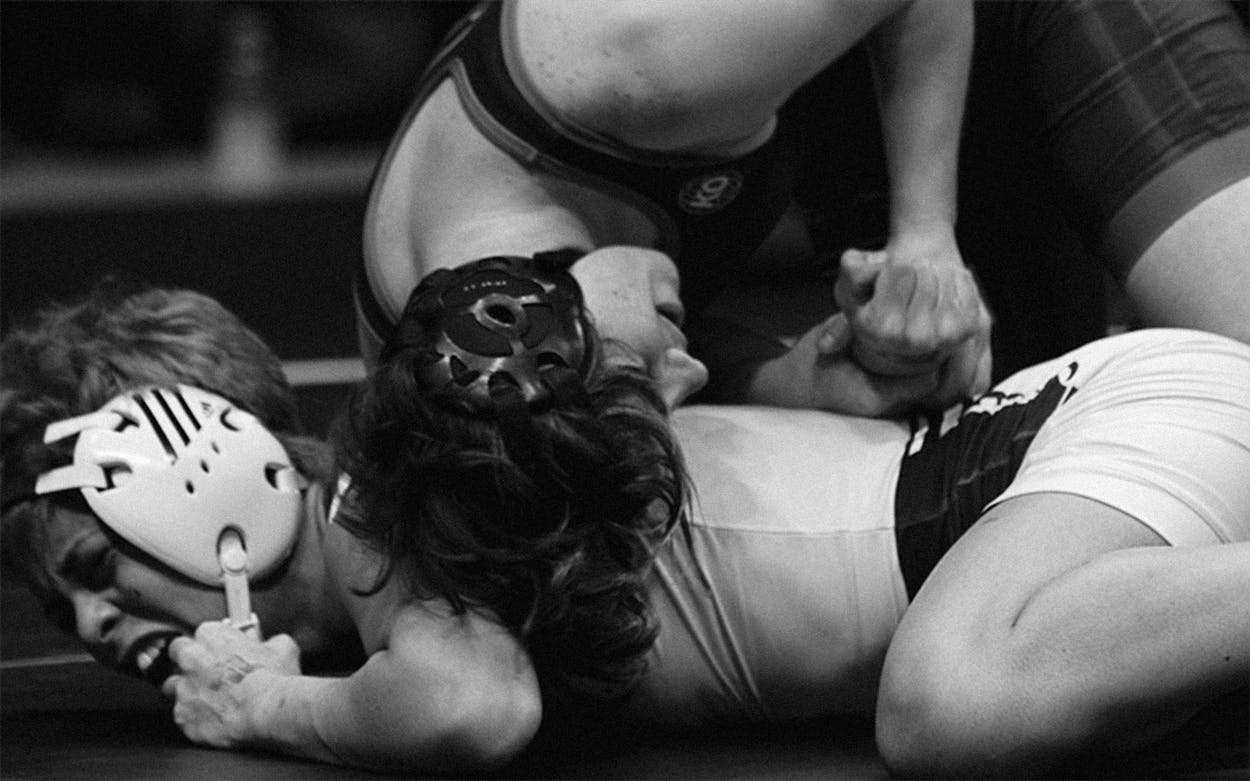Mack Beggs would have been an activist anyway. The 22-year-old former high school and college wrestler has felt the pull toward standing up for what he believed in since he was a 12-year-old advocating for mental health awareness. But life cast him in a starring role in that capacity during his athletic career at Trinity High School in Euless, just south of Dallas–Fort Worth International Airport. Beggs won the state wrestling championships in 2017 and 2018—but in the girls’ division, as necessitated by a Texas rule that required him, as a transgender boy, to wrestle against the competitors of the gender listed on his birth certificate.
Beggs, a subject of the recent Hulu documentary Changing the Game, found himself a controversial figure because of that rule, set by the University Interscholastic League, which governs athletic competitions for public primary and secondary schools in Texas. (Two of his female opponents in the 2017 state tournament chose to forfeit rather than face him in the ring, including one in the final.) The entire situation was unfortunate. Beggs, who wrestled against boys in non-UIL events such as USA Wrestling’s Texas State Championships (where he took third place in the Greco-Roman and freestyle competitions), would have preferred to compete against boys his entire career. Being forced to choose between not wrestling at all, or wrestling against girls, came at a cost.
“I had limitations, because I was not on a normal dose of testosterone, and on top of that, both of my hormone levels were depleted because of a hormone blocker,” he explains while promoting Changing the Game. He came out to his family in the seventh grade—his supportive grandmother and legal guardian, Nancy, is a scene-stealer in the film, as a 25-year Dallas Police Department veteran with a Texas-size collection of firearms. Beggs began to transition socially during his freshman year, before beginning hormone replacement therapy the following fall. In order to comply with competition rules around hormones, Beggs had to delay therapies that trans boys who aren’t competitive high school wrestlers normally receive. “Even to this day, I’m not developed fully yet,” he says. “Me and my doctor had that conversation every single day, and I’m still playing catch-up.” Nonetheless, Beggs was able to pursue a college wrestling career at Life University near Atlanta.
Beggs is reflective when talking about Changing the Game, which debuted on Hulu in early June but has been screening on the festival circuit since early 2019. The film captures him during his senior year of high school—a transitional point in anyone’s life. He gets embarrassed, a little, when he watches his teenage self on the screen—“I’m like, ‘Dude, you need to get your words together’”—but he’s pleased with the contrast his story presents to those of the other student athletes in the documentary. As lawmakers, including those in Texas, introduce legislation to make it more difficult for transgender girls to compete against those of their own gender, Beggs’s story serves as a counterpoint: in high school, he was a transgender boy who was successful competing against both boys and girls, even while taking hormone blockers.
“I use that as leverage in my argument” that fairness in sports isn’t tied to gender, he says. As an athlete, he’d have been happy to compete against other boys. But as an activist, if his example means that he can push back against the idea that allowing trans kids to compete makes sports unfair, he seems happy to take that on.
“I’m hurt that my trans brothers and sisters—especially my trans sisters—are being attacked. I’m like a big brother, and they’re attacking my sisters, bro,” he says. “And that’s it. You don’t [mess] with family.” Beggs has plenty of arguments around that point of fairness, and he’s got little time for anyone who argues that the existence of trans athletes attacks the integrity of sports. (He points out that both of the other athletes in the documentary lost when they competed their senior year, just as any athlete is bound to lose sometimes.) But ultimately, his story isn’t about who won on the mat, he says. The fairness that’s most important to him now is in the fight to ensure that other trans kids have access to the aspects of wrestling that made him the man he is today.
“These legislators attacking these kids, they’re being stripped of something that is essentially lifesaving,” he says. “At least for me—I don’t know what I would do without sports. I played sports all my life. That was my outlet, that’s where I have my connections. That’s where I have my friends, my coach-athlete relationships. Taking away those connections is what is actually attacking sports.”








